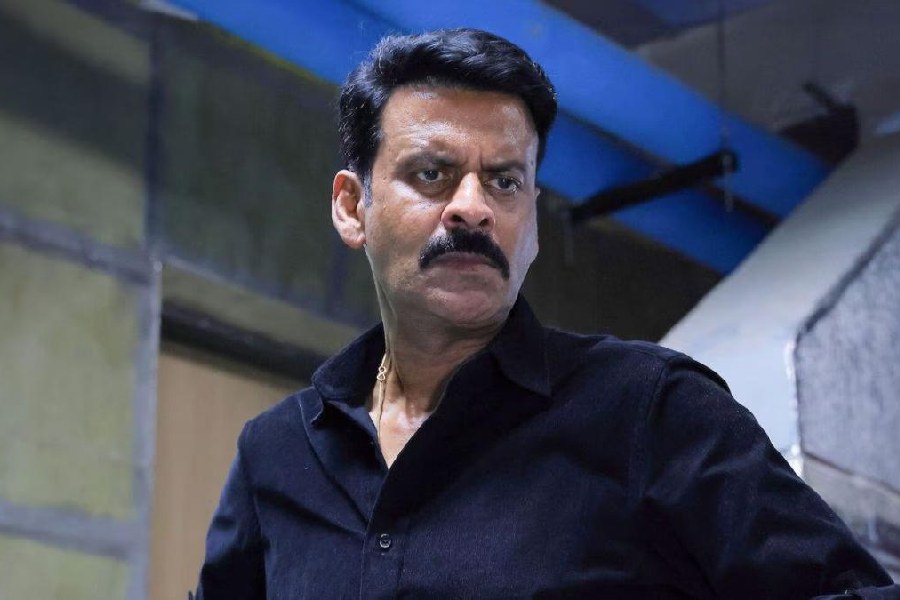 |
Laptop (U/A)
Directed by: Kaushik Ganguly
Starring: Rahul Bose, Churni Ganguly, Kaushik Ganguly, Ananya Chatterjee, Saswata Chatterjee, Gaurav Chakrabarty, Ridhima, Rajesh Sharma, Arindam Sil, Pratyay Basu, Pijush Ganguly
Running time: 128 minutes
Secrets and lies, sympathy and love, solitude and longing collide and clash in Kaushik Ganguly’s latest endeavour Laptop, to create a tapestry of relationships which shows little but reveals much, much more. We get on with our lives and our lives get on with us but press the wrong button and the ghosts of the past come tumbling out. And how!
In the way it takes off, Laptop may seem like a ‘hyperlink’ film in the tradition of a Babel or a Crash, where several entwined strands of stories bloom parallelly echoing the same theme. But here it’s actually more like separate episodes bound together by a narrative-shuttling device — the laptop. Yes, very much like Tapan Sinha had used the harmonium to script his eponymous satire back in 1976.
Like the musical instrument got passed around 36 years back on screen, the laptop here is stolen, bought, gifted and sold, changing lives as it switches ownership. But unlike Harmonium, the contents of the laptop in Laptop play havoc with the characters.
Jiyon (Gaurav Chakrabarty) is smitten by Raya (Ridhima) as her pictures slideshow on the laptop his pice-hotel-manager father Tarun (Pijush Ganguly) gets him, having bought it from the hearse driver (Rajesh Sharma), who in turn had stolen it from Raya’s doctor father (Arindam Sil). That the latter is a practitioner with a fertility clinic would go on to create ripples in the lives of characters from the other two stories — Indra (Rahul Bose) and Mr and Mrs Mukherjee (Saswata Chatterjee and Churni Ganguly).
Somewhere in the middle of this jigsaw puzzle, which trapezes from the streets of Calcutta to the hills of Darjeeling, is the writer Partha (Kaushik Ganguly) who is visually impaired and dictates the lines to his help Shubha (Ananya Chatterjee). In the way the narrative is designed, shot and edited, Partha is not one half of one of four stories but almost the conscience of Laptop. He not only speaks to the other characters, he also speaks for them.
And it helps that it is the best performance of the film, perhaps the best performance on the Bengali movie screen in some time. Right from his television days, Kaushik has always been a fine actor but often reduced to cliché-ridden caricatures. Here he lets loose the entire spectrum of emotions which run across his face like a hungry tide and quietly slips into your soul.
An episodic film, of course, comes with its obvious pitfall — comparison between the episodes. That is where Laptop sometimes loses steam because it doesn’t take long to pick your favourite plots and people and when you start missing them, the film starts feeling a tad lethargic and indulgent.
The final story, which has strains of Kalpurush in its set-up of three characters in a planters’ bungalow locked with the past, could have been more caustic. The festival cut, 15 minutes shorter and playing on certain city screens, may just be the more correct configuration of Laptop.
If Kaushik the actor shines the brightest, the other performances are uniformly good, the standouts being the restrained Ananya, the natural Churni and the edgy Pijush. And with his constant collaborators behind the camera — cinematographer Sirsha Ray and editor Mainak Bhaumik — Kaushik the director is able to create magic movie moments in rain and shine, inside and outside… from the fingers running riot on the typewriter to the truck full of furniture en route to a new address.
Right from the time it plays with the opening credits, Mayookh Bhaumik’s main theme for the film sounds like a dream. Although overused and employed in every second scene to coat the silent patches, the theme is so stirring and plucks at that universal feeling of pain and pathos so strongly, that it’s saved in your hard disk for good.
As the lights come back on in the theatre, however, you reach out for the comforting darkness of Partha’s world. He sees it best because he sees nothing at all.
“Dekhen ki kore?” “Jaani naa!”










